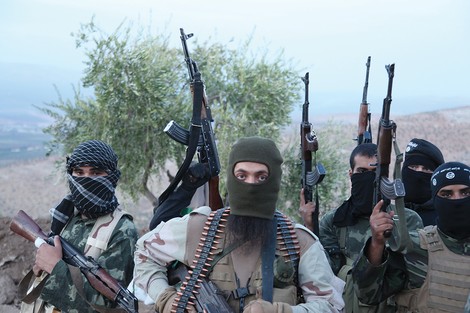Your podcast discovery platform
Curious minds select the most fascinating podcasts from around the world. Discover hand-piqd audio recommendations on your favorite topics.

piqer for: Globalization and politics Global finds
I am an Australian freelance journalist focussing on conflicts, politics, and warzones around the world. I have been working as a journalist for over 5 years, having reported from Australia, Germany, China, Egypt, Palestine, and Ukraine. I am especially interested in the way that new technologies are being used in conflict zones in unexpected and often disturbing ways. During my time working as a journalist, I also co-founded open-source war reporting site Conflict News.
Anatomy Of Terror: What Makes Normal People Become Extremists?
Terrorism is not a new phenomenon around the globe. Terrorist groups have been plying their trade for decades, in all corners of the world, for a huge range of ideologies and causes. Currently, Islamist-inspired terror attacks make up the bulk of the death toll; however, this has not historically always the case.
2017 has already seen its share of carnage. London, Manchester, Barcelona, Stockholm have all seen attacks, not to mention the weekly carnage in places like Iraq, Syria, and Libya. Often in the wake of large-scale terror attacks, the question is asked: What could drive someone to commit such evil?
This has given rise to a field of study that attempts to answer this very question. Scientists and researchers are working to understand if there is indeed one common profile for all terrorists, or if their motivations are as varied as their targets.
Peter Byrne's article for New Scientist takes a deep dive into this scientific question. What it finds is that researchers, who themselves are taking great risks working in active war zones, are discovering a confused and disturbing picture of the 'archetypal terrorist'. While almost all terrorists are strongly driven by ideology, it is not this alone which is driving violence. Instead, they find that among other things, state violence is driving radicalization—those who believe themselves, their families, or their 'in-group' to be a victim are much more likely to commit attacks.
This, in many ways, discredits politicised de-radicalization programs, and suggests that governments may need to face up to the role in that they themselves play in perpetuating this cycle of violence. Combating radical ideologies is politically easy for the West, but the harder task will be ending the wars that drive ideologues to take up arms—wars which many governments are complicit in.
